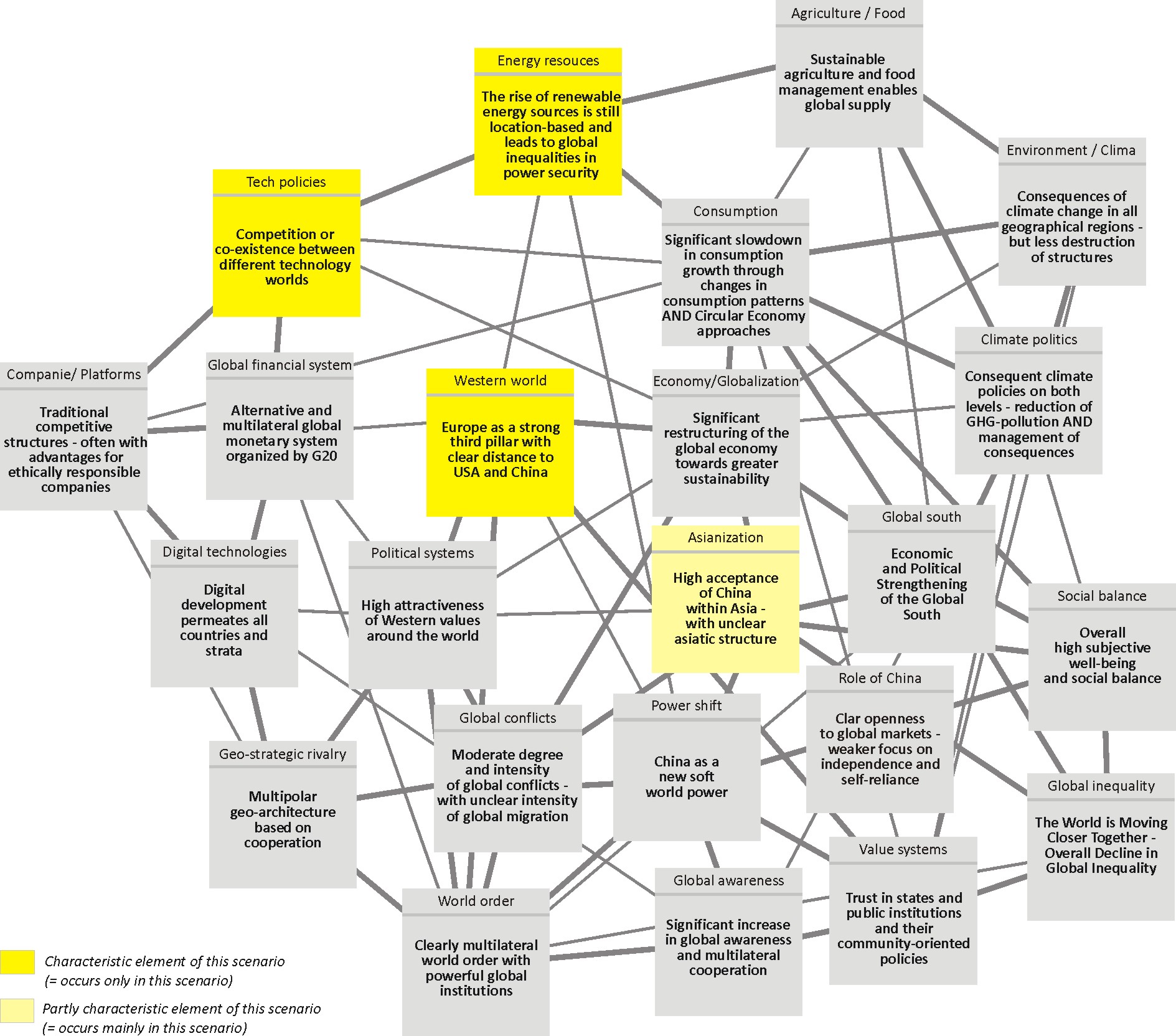Olympic rings
Geo-regional pillars dominate
- Division of the world into several geo-regional spheres of influence – with an overall innovative competitive structure including different technology worlds
- Europe as a strong (third) pillar with clear distance to USA and China
- China opens up and becomes an economically and technologically leading nation – but with strong competition within Asia
- Multilateral cooperation with focus on climate policies and significant restructuring of the global economy towards greater sustainability (including limitation of global world trade)
The world is becoming truly multipolar: in addition to the United States and China, former second-row powers such as India, Russia and the European Union are establishing themselves as strong, independent players on the world stage. They represent both regional and overarching geo-strategic interests. The basis for this are universal values such as human rights, freedom, the rule of law and tolerance. Therefore, the geo-regional pillars are developing a functioning culture of cooperation with strong, global institutions.
China has opened up economically as well as politically and culturally and has become a new soft world power, leading its own alliance of direct partner states on the one hand, but also working cooperatively with the other global powers on the other.
Global inequality has declined overall – largely due to the growth of a global middle class in China, Asia and large parts of the former developing world. As a result, many global crises can be resolved or defused because important preconditions for conflict no longer exist. The world is experiencing an overall peaceful development with only moderate migration movements.
The consequences of climate change are being felt all over the world, but without challenging the state structures in the particularly affected regions. Rather, a globally coordinated climate policy is becoming the central „world project“, which, in addition to dealing with the consequences of climate change, also includes a significant reduction in greenhouse gas emissions. However, building a carbon-neutral energy economy remains location-dependent, leading to global inequalities in security of supply that can also create tensions between states and blocks when it comes to energy transportation, for example.
The transformation of the global economy toward greater sustainability is based on changes in consumption patterns and a more multipolar financial system. With the overcoming of the classic growth and free trade paradigm, global standards are also no longer considered to be unreservedly desirable: In many cases, geo-regions are developing their own technology concepts or circular economy systems. Agriculture and the food industry are also increasingly being converted to sustainable and regionally specific approaches without negatively affecting global supply.




